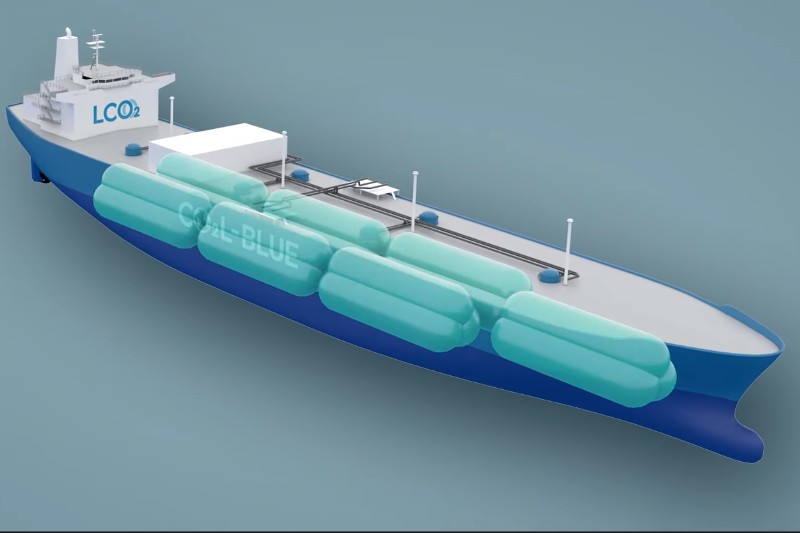Inspenet, May 22, 2023
In response to increasing demand for CO 2 shipping resulting from the growth of carbon capture and storage (CCS) projects, a group of Japanese shipbuilders has announced a new project to develop a liquefied carbon dioxide ocean tanker. (LCO 2 ).
The group is made up of Mitsubishi Shipbuilding, a subsidiary of Mitsubishi Heavy Industries (MHI) Group, and Nihon Shipyard Co., Ltd., a Tokyo-based joint venture between Imabari Shipbuilding Co., Ltd. and Japan Marine United Corporation. Together, they will embark on a collaborative study for the development of a large-scale ocean-going LCO transport vessel.2 .
The demand for LCO 2 transport is expected to grow along with the emergence of CCS projects, which involve the safe underground storage of captured CO 2 . The number of CCS projects under development is increasing with increasing support from national governments, particularly in Asia following the example of the EU. As a result, the project partners believe that it is crucial to establish a strong shipbuilding infrastructure in Japan to meet the demand for LCO 2 transportation.

Construction of the test vessel is scheduled for 2027
Construction of the LCO 2 test ship is projected to take place at the Nihon Shipyard, with potential delivery estimated in 2027. The project will take advantage of Mitsubishi Shipbuilding’s experience and advanced gas handling technology, acquired in the design and construction of liquefied gas transportation vessels, such as liquefied petroleum gas (LPG) and liquefied natural gas (LNG) carriers. Nihon Shipyard, on the other hand, will contribute its wealth of shipbuilding experience in various types of vessels and advanced technological capabilities.
MHI Group proactively seeks strategic measures to strengthen its position in the energy transition. Along with conventional shipbuilding operations, Mitsubishi Shipbuilding aims to leverage its deep-rooted marine engineering technologies in shipbuilding to help advance the maritime industry in Japan and around the world. This latest project serves as a significant component of these efforts.
Through collaboration with various Japanese shipping companies as well as domestic and foreign energy companies, Mitsubishi Shipbuilding is actively pursuing the development and commercialization of LCO 2 carriers.
In anticipation of forthcoming regulations that will restrict CO 2 emissions, Nihon Shipyard is exploring the commercialization of ships fueled by LNG and ammonia.
In the future, Mitsubishi Shipbuilding and Nihon Shipyard have committed to providing dedicated LCO 2 carriers to the market to establish a comprehensive CCS value chain.
In March, Mitsubishi Shipbuilding Co. introduced an LCO 2 carrier vessel being built for Sanyu Kisen Co., in collaboration with the Japan New Energy and Industrial Technologies Development Organization (NEDO), a Japanese government organization that works to promote research, development, and demonstration of new industrial technologies and energetic. The delivery of the ship is scheduled for the second half of 2023 after outfitting and sea trials.
Source : https://gcaptain.com/japan-shipbuilders-embark-on-liquid-co2-tanker-project/
Image : Illustration courtesy of Mitsubishi Heavy Industries
Don’t miss the Inspenet News at: https://inspenet.com/inspenet-tv/

